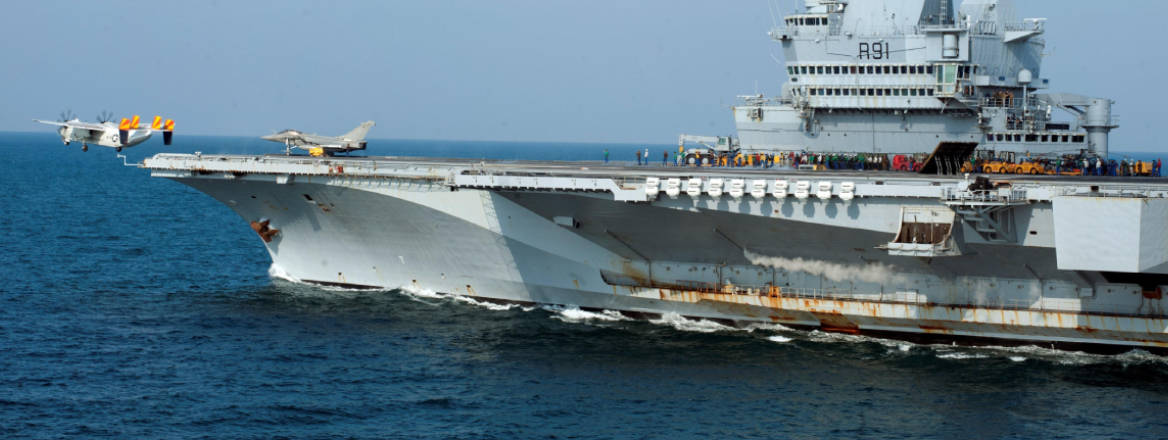An Increasingly Volatile International Environment Opens New Fronts for European Navies
From the Strait of Hormuz to the eastern Mediterranean, maritime tensions are pushing European states to expand their use of naval power.
With some exceptions, European responses to security crises are often just wishful thinking from risk-averse actors. But is there something changing in the mindset of the Europeans, at a time when the EU is starting to enable the development of some autonomous military capabilities? The maritime domain could well become the first operational arena where more European states will address their strategic security interests by using hard power.
New Capabilities
In the past few weeks, there have seen significant developments in the augmentation of Europe’s naval abilities. Two decisions in particular highlight the maritime dimension as a growing field for Europe’s strategic priorities and an opportune area for internal solidarity.
First, a group of eight countries recently agreed to launch a European-led naval surveillance operation (EMASOH) in the Strait of Hormuz, a vital oil transit route. Four of them – France, the Netherlands, Greece, and Denmark – have already committed to deploying naval assets, with a command and control organisation which includes a force headquarters located in the UAE.
The second decision – France’s announcement that it will deploy warships to the eastern Mediterranean to help Greece ensure its sovereign rights in its standoff with Turkey – another NATO member – is of a totally different nature. However, it is another visible signal that the maritime domain is becoming a key area for the balance of power between European states and those who challenge their security interests.
These two decisions are inserting European navies into theaters, where the possibility of confrontations with states of significant military capabilities – Iran and Turkey, respectively – cannot be totally excluded.
There is an acceptance of risks significantly higher than those encountered in the EU’s naval operations to date, operations ATALANTA (combating Somali pirates) and SOPHIA (EUNAVFORMED). Although France has solid experience in high-end naval operations (e.g. the 2011 Libya campaign or the naval precision strikes against the chemical installations of the Syrian regime in April 2018 in an Anti-Access/Area Denial environment), the same cannot be said for many European countries. For most of the participating countries, these new missions are a significant step up from the current European naval operations mandated to combat illegal immigration, trafficking, and piracy.
Variable European Arrangements
If these new naval operations in higher-risk environments are a bellwether of a new collective will across Europe to step up and deploy hard-power, they also highlight issues. The fact that the European Maritime Surveillance Mission in the Straits of Hormuz and the French-Greek naval cooperation in the Mediterranean are not under the auspices of the European Union is noteworthy.
These patterns of cooperation are closer to the spirit of the European Intervention Initiative (EI2) proposed by Emmanuel Macron to his European partners in 2017. It is noticeable that one of the most committed European countries in the EMASOH is Denmark, which has an opt-out clause in the EU’s Common Security and Defence Policy, but is fully part of the EI2.
It will now remain to be seen how this could be an incentive for more European countries to increase their involvement in the tougher side of the maritime security, and possibly for the EU as a whole to practice this kind of operations as a component of its 2014 maritime security strategy.
What place for the UK?
The decisions have laid bare the question of what role the UK – a signatory nation of the EI2 – could or should play in European naval operations post-Brexit. It would be unfortunate if at exactly the time when European navies are taking on more serious crisis management missions, the Royal Navy, with its capabilities well-formated to deal with high-intensity conflicts, would begin working in parallel rather than in concert with European missions. In the Strait of Hormuz European and British forces will be operating separately in the same area and we undoubtedly lose resources efficiency as a result.
But with or without Britain, we can bet that, for the Europeans, whose prosperity relies on sea lines of communications, especially from Suez to beyond the straits of Malacca, the maritime domain will become a laboratory for their defence and security initiatives. The issue is that this domain offers the most serious risk of physical confrontation and escalation due to the proximity of maneuvering naval assets.
It remains to be seen if the Europeans are finally becoming more strategically assertive, or if this is simply another case of naval saber-rattling.
The views expressed in this Commentary are the author’s, and do not represent those of RUSI or any other institution.
WRITTEN BY
Vice Admiral Patrick Chevallereau
RUSI Distinguished Fellow, Military Sciences


